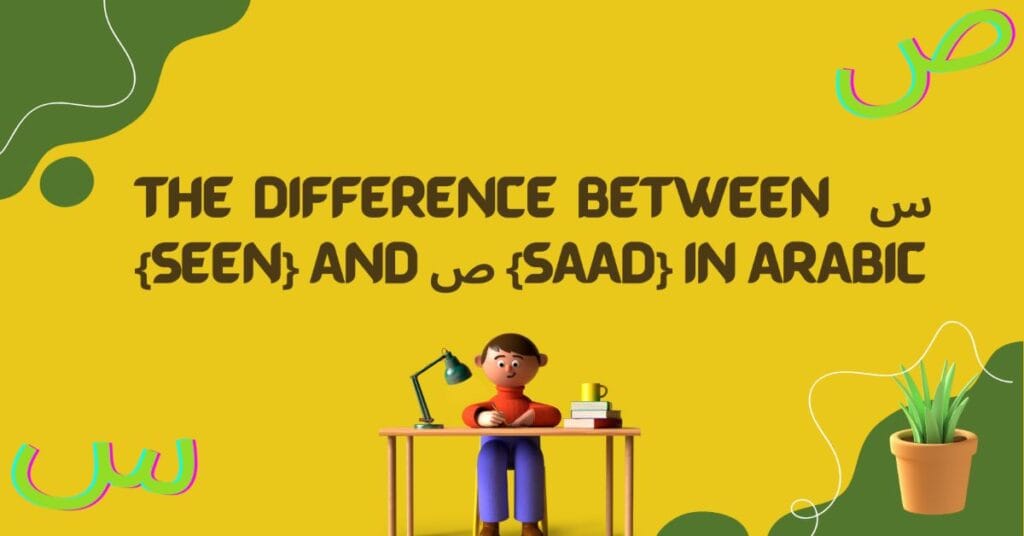“Is Arabic hard to learn?” is a common question that many people ask themselves when they want to learn a language like Arabic. It’s also one of the first questions that people who are learning Arabic ask their teachers and friends who speak it.
According to their studies and experiments, it takes a typical English speaker close to eighty-eight weeks to learn the Modern Standard Arabic (MSA) dialect of Arabic, along with the Arabic alphabet and grammar. And we’ll explain why in this post.
What Makes Arabic Hard To Learn?
While Arabic is undoubtedly difficult, it’s not nearly as difficult as people seem to believe. To begin with, there are dozens of dialects of the Arabic language, which are typically categorized by the country or region in which they are spoken and can vary greatly from one another.
Selecting a dialect to focus on is the first step, but that’s the simple part. Although its 28 script letters make it simpler for English speakers to understand than the thousands of Chinese characters, learning a new writing system still requires some getting used to.
The absence of most vowels from words makes reading and writing Arabic particularly difficult for beginners. Consequently, it gets challenging to read the language. Additionally, Arabic is written from right to left rather than left to right, which requires some getting used to.
Arabic, as it is spoken, has some features that make it challenging to learn. Some sounds used, such as sounds made in the back of your throat, are not used in other languages or are simply unknown to English speakers.
The grammar is difficult as well; verbs frequently come before the subject, and you must learn both the singular and plural forms of words in addition to the dual form.
How Can You Make Learning Arabic Easier?
Arabic is a stunning and sophisticated language. It can be intimidating to learn, but it is definitely worth learning because of its importance around the world. Additionally, you can use your enthusiasm for the locals, the language, and the culture to advance your fluency even more quickly.
Here are five simple steps that will help you master Arabic quickly:
Learn the Arabic alphabet
Knowing how to read and write a language is the first step in learning it. Learning the Arabic alphabet is a requirement if you want to speak Arabic fluently. As a result, you will be able to read anything written in Arabic and pronounce words correctly.
Master Arabic pronunciation
There are many distinctive sounds in the Arabic language, and you can learn these even though they don’t exist in English. However, there is one final piece of advice: practice frequently. The more you practice these pronunciations, the faster and easier you’ll learn Arabic.
Practice with speaking exercises
Speaking exercises are frequently the last things language learners do. Perhaps they are concerned about feeling embarrassed or coming off as stupid.
But don’t let your fear prevent you from mastering Arabic. To become fluent, you must begin speaking from the very first lesson. With time, you’ll feel less self-conscious.
Remember more with spaced repetition
The fastest way to learn Arabic is through a technique known as spaced repetition. It involves rereading your material a few days after your Arabic lesson.
As you go over it again and again, you’ll remember it more and more. Soon, all the information you want to know will be in your head.
Surround yourself with anything Arabic
The more you hear and practice Arabic, the faster you’ll attain fluency. Try a couple of these to enhance your Arabic knowledge:
- Listen to Arabic songs
- Watch Arabic YouTube.
- Watch Arabic TV.
- Learn Arabic culture
Learn common Arabic words and phrases
It is insignificant how many words you know when learning a foreign language like Arabic, but you must use the appropriate language. The most common Arabic words and phrases that native Arabic speakers use on a daily basis are the ones you should spend time learning.
Conclusion
Arabic is a difficult language to learn. It comes with challenges such as difficult grammar and the absence of vowels. However, you can learn Arabic easier by implementing the steps we suggested.
If you have the patience and dedication it takes to master this beautiful language, you will be rewarded with the knowledge of an ancient civilization and the ability to converse with people from around the world.











